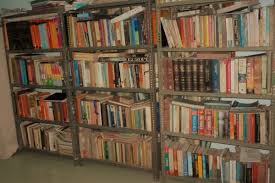
Over the years I have made different lists of favourite books, though the first two would be in every list. Re-posting a list from 2015
1.The Glass Bead Game by HermannHesse.
2. The Magic Mountain by Thomas Mann.
3. Most other books by Hesse and Mann [but not Siddhartha].
4. The Morning and the Evening by Joan Williams.
5. A Multitude of Sins by J A Cuddon.
6. Dibs—in Search of Self by Virginia Axline.
7. Place Mill by Barbara Softly [a children’s book]
8. The Synthesis of Yoga by Sri Aurobindo.
9. Walden by Henry David Thoreau.
10. Europe: A History, by Norman Davies.
11. Cancer Ward by Aleksandr Solzhenitsyn; also The First Circle, and One Day in the Life of Ivan Denisovich by the same author.
12. Zen and the Art of Motorcycle Maintenance by Robert M Pirsig.
13. War and Peace by Leo Tolstoy.
14. Anna Karenina by Leo Tolstoy.
15. Les Miserables by Victor Hugo.
16. All the plays of Henrik Ibsen.
17. The Mahabharata.
18. The Ramayana of Tulasidasa.
19. Manimekhalai
2o. The Golden Treasury [F.T. Palgrave]
